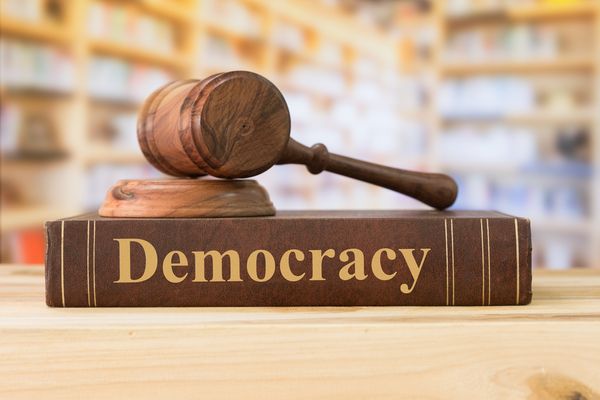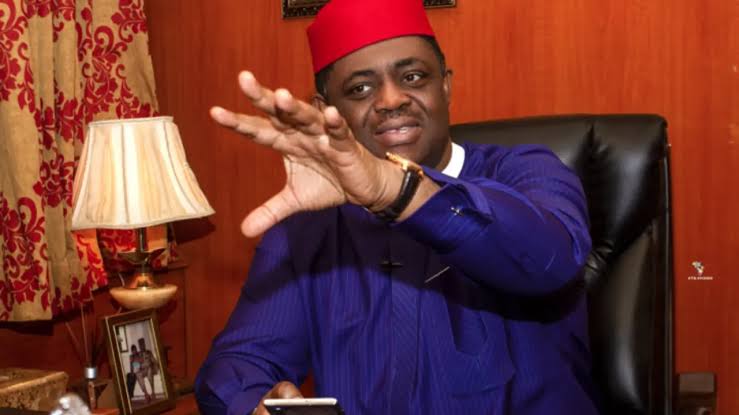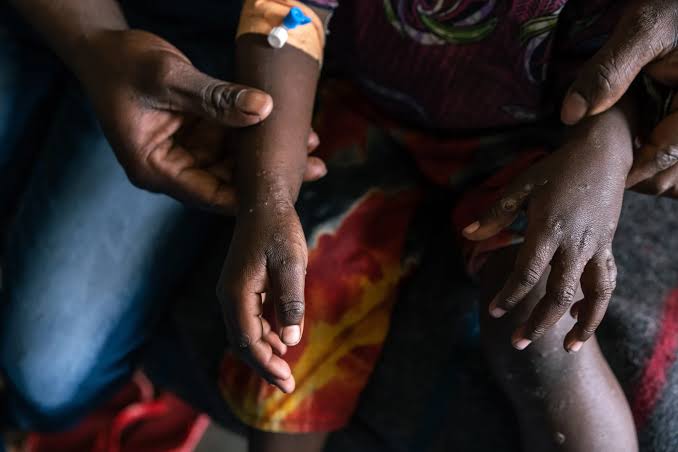Metro
Navigating free speech in Zambia: Balancing democracy, national security
Published
5 months agoon
By
Isaac Dachen
Zambia, like many countries, stands to gain from robust free speech, but it also faces challenges from what some describe as an “avalanche of speech.”
While liberal democracies emphasise free expression, this can sometimes lead to information overload, disinformation, polarization and echo chambers.
The potential for hate speech, harassment and reckless statements that undermine social cohesion is also a concern.
Balancing free speech with national security and public order remains a complex issue.
National Democratic Congress (NDC) leader, Saboi Imboela, addressed this during a recent discussion, stating, “One philosopher said that you have to love the noise of democracy. So if you do not love the avalanche of speech or the ok noise of democracy then you are not democratic.”
Imboela acknowledged the difficulty of this balancing act but underscored the importance of continuously fighting for the right to speak.
To navigate these challenges, Zambia needs to focus on promoting media literacy and critical thinking.
Encouraging responsible speech and journalism, implementing effective moderation and regulation and fostering inclusive public discourse are essential steps.
Additionally, supporting education and critical thinking skills would be crucial in managing the complexities of free speech.
Upon his election and swearing-in, President Hakainde Hichilema criticized the outgoing regime for its brutality while promising a “better democracy.”
In his debut address, Hichilema stated, “I will be a president of all Zambians, of those that voted for me and of those that did not. We will foster a better democracy, the rule of law, restoring order, respecting human rights, liberties and freedoms.”
This promise aligned with the findings of the 2024 flagship report from the V-Dem Institute, which highlighted Zambia’s successful transition from being labeled an “electoral autocracy” to an “electoral democracy.”
This report places Zambia near the top of the list of countries that have made significant democratic advancements, reversing the trend of autocratic governance.
Former Justice Minister, Mulambo Haimbe, remarked on this progress, stating, “Around the world, the state of democracy was becoming increasingly uncertain, facing threats that seem more pronounced with each passing day.
There was a clear trend of democratic backsliding as undemocratic regimes tighten their grip, limit freedom of expression and erode the rule of law.”
However, he praised Zambia for standing out positively by embracing democratic principles.
In contrast, renowned academic, Dr. Sishuwa Sishuwa, criticised the use of lawfare to suppress opposition in Zambia.
Sishuwa wrote, “When Zambia experienced democratic backsliding between 2011 and 2021, the deliberate use of legal mechanisms to weaken opposition parties played a central role.”
He described this strategy as “lawfare,” a persistent theme in Zambian politics. “The defeat of President Edgar Lungu and his Patriotic Front (PF) in the August 2021 election raised prospects for a stronger legal foundation that would address the conditions that enabled the previous government to engage in legal autocracy,” Sishuwa added.
Despite these observations, Sishuwa noted that nearly three years after President Hichilema’s election, the situation has hardly changed, indicating ongoing challenges in the quest for a more balanced democracy.
Zambia’s journey underscores the need for a careful balance between free speech and national security.
Ensuring that the “avalanche of speech” enriches rather than overwhelms the country’s political landscape would be key to strengthening its democratic institutions and fostering a more inclusive and responsible public discourse.
This story is sponsored by Project Aliyense.
You may like
-


Zambia announces second case of Mpox as country battles cholera outbreak
-


Zambian NGOs rate President Hichilema’s reforms as not far-reaching
-


Zambian drug agency declares ex-President Lungu’s daughter wanted
-


Facebook returns to Uganda after 4-year ban
-


Zambian NGO decries persistent corruption, says governance in 2024 marked by mixed fortunes
-


Zambia: Expert warns of food security threat due to climate change
Metro
‘Don’t start what you can’t finish’, ex-Nigerian official replies President Tchiani
Published
3 weeks agoon
December 29, 2024
Former Nigerian Aviation Minister, Femi Fani-Kayode, has told President Abdourahamane Tchiani of Niger Republic to refrain from making infantile and puerile allegations that Nigeria is conniving with France and the Lakurawa terrorists to destabilize his country.
Tchiani had, during an interview with Radio-Télévision du Niger on December 25, accused the Nigerian government of using the sect, with the help of foreign security forces notably from France, to wreck havoc in his country, insinuating that President Bola Tinubu had been paid by the France government to allow their military to establish a base in Borno State.
He also alleged that Nigeria, acting in collaboration with the French government and the terrorist group, was responsible for an attack on the Niger-Benin oil pipeline on December 13, 2024, in Gaya, Dosso Region of Niger Republic.
But in a statement he posted on his official X handle on Sunday, Fani-Kayode who is popularly called FFK, said Nigeria does not need the help of France and thr Lakurawa terrorist to destabilize Niger Republic.
FFK insisted that Nigeria is not part of the western powers sponsoring terrorists organizations to wretch havoc on the West African sub region.
“If Nigeria wanted to destabilise Niger Republic, I do not believe that we would need France or any terrorist organisation to do so,” the politician wrote.
He noted that on the contrary, western powers are the ones behind terrorist organizations operating in the region and other parts of Africa.
“I have maintained that the western powers are behind the terrorist groups that have plagued the West African sub region over the last 15 years and for the last ten years I have publicly stated this and given my reasons.
“I am equally certain that Nigeria, being one of the major victims of these terrorist organisations, has had no part in it and that no Nigerian President, past or present, has indulged in such grave and dangerous actions.”
He went on to advice Tchiani against provoking Nigeria with unguarded and infantile utterances capable of stoking Nigeria against his country.
“The Nigerien Military Head of State, Abdourahamane Tchiani, would do well to be careful not to provoke our wrath with his absurd assertions and remain mindful of the fact that the defence budget for his country, Mali and Burkina Faso COMBINED is not up to 25% of Nigeria’s.
“Tchiani’s grave allegations that President Tinubu and NSA Nuhu Ribadu have been bought by the French to destabilise Niger Republic, that our Government is jointly sponsoring a terrorist group with France to do same and that there are French military bases in Nigeria are infantile, puerile, mendacious and asinine.
“It is a squalid attempt by the Nigerien Head of State to sow the seeds of dissention in our country, to alienate our people from constituted authority, to divide our people and to undermine the Tinubu administration,” he added.
“It is also highly provocative and the FG should consider the possibility of taking other more extreeme measures if this reckless provocation continues.
“We are under no obligation to show restraint when we are being undermined and maligned.
Metro
Zambia announces second case of Mpox as country battles cholera outbreak
Published
4 weeks agoon
December 28, 2024
The Zambian Ministry of Health has reported a second case of Monkeypox, popularly known as Mpox, in Kitwe region of Copperbelt Province.
Acting Health Minister, Douglas Syakalima, who made the announcement on Friday during a press conference in Lusaka, revealed that the Ministry is intensifying contact tracing and surveillance to curb further spread of the disease.
Syakalima who also addressed the ongoing cholera outbreak in Nakonde, Muchinga Province, said thus far, seven cases have been confirmed.
“The second Mpox case involves a 34-year-old female from Ndeke, Kitwe, who presented with symptoms including rash, fever, swollen lymph nodes, and oral ulcers on December 21,” Syakalima said at the press parley.
He noted that there was an initial misdiagnosis with chickenpox in Lumwana, North-Western Province, but laboratory tests on December 26 confirmed that it was Mpox.
Syakalima added that the patient’s husband, who works in a neighboring country with confirmed Mpox cases, had experienced similar symptoms earlier this month.
“Both patients are now stable and under close monitoring. A rapid response team has been deployed to trace contacts and prevent further spread,” he said, adding that eight close contacts of the couple are currently under observation, while nationwide surveillance has been heightened.
The Health Minister added that on December 26, five cholera cases were confirmed at Nakonde Urban Clinic with the first three patients, a husband, wife, and their son, admitted on December 24 with symptoms of diarrhea, vomiting, dehydration, and shock.
“Today, two more cases have been reported, bringing the total to seven confirmed cholera cases from the same household,” Syakalima stated.
He explained that Nakonde’s location as a border town with high cross-border movement poses a risk for the disease to spread to other parts of the country.
The Minister however, assured that the Ministry has deployed teams to trace contacts, chlorinate water sources, disinfect affected homes, and activate Incident Management Systems at district and provincial levels while surveillance has been heightened, and contact tracing is ongoing for 33 individuals.
“The government remains committed to preventing further spread of these diseases,” Syakalima assured.
EDITOR’S PICK


Nigeria: Marketers predict further price cut as another refinery begins operations
Oil marketers and the Nigerian Midstream and Downstream Petroleum Regulatory Authority expect refined petroleum product prices to reduce as another...


Kenya: Consumer inflation rises to 3.0% from 2.8%
Kenya’s statistics agency said on Tuesday that Kenya’s consumer price inflation increased slightly to 3.0% year-over-year in December from 2.8%...


South Africa’s Transnet’s half-year deficit hits $117m
Transnet, a state-owned logistics company in South Africa, announced on Tuesday that it had lost 2.2 billion rand ($117.48 million)...


Nigeria, China extend $2bn currency swap deal
A 15 billion yuan ($2 billion) currency-swap arrangement between China and Nigeria has been extended to boost investment and commerce...


Egypt’s central bank maintains overnight rates
As anticipated, Egypt’s central bank has maintained its overnight interest rates, stating that although inflation was predicted to drop significantly...


Illicit flows cost Nigeria, others $1.6bn daily— AfDB
According to the African Development Bank (AfDB), illicit money flows and profit shifting by multinational corporations doing business in Africa...


‘Don’t start what you can’t finish’, ex-Nigerian official replies President Tchiani
Former Nigerian Aviation Minister, Femi Fani-Kayode, has told President Abdourahamane Tchiani of Niger Republic to refrain from making infantile and...


Again, Starlink raises prices of its services in Nigeria
Elon Musk’s satellite internet service provider, Starlink, has again jacked up the prices of its services in Nigeria after an...


Former President of Moroccan club Raja sentenced to 3 years in prison
The former President of Moroccan top club, Raja Casablanca, Mohamed Aouzal, has been sentenced to three and a half years...


Zambia announces second case of Mpox as country battles cholera outbreak
The Zambian Ministry of Health has reported a second case of Monkeypox, popularly known as Mpox, in Kitwe region of...


